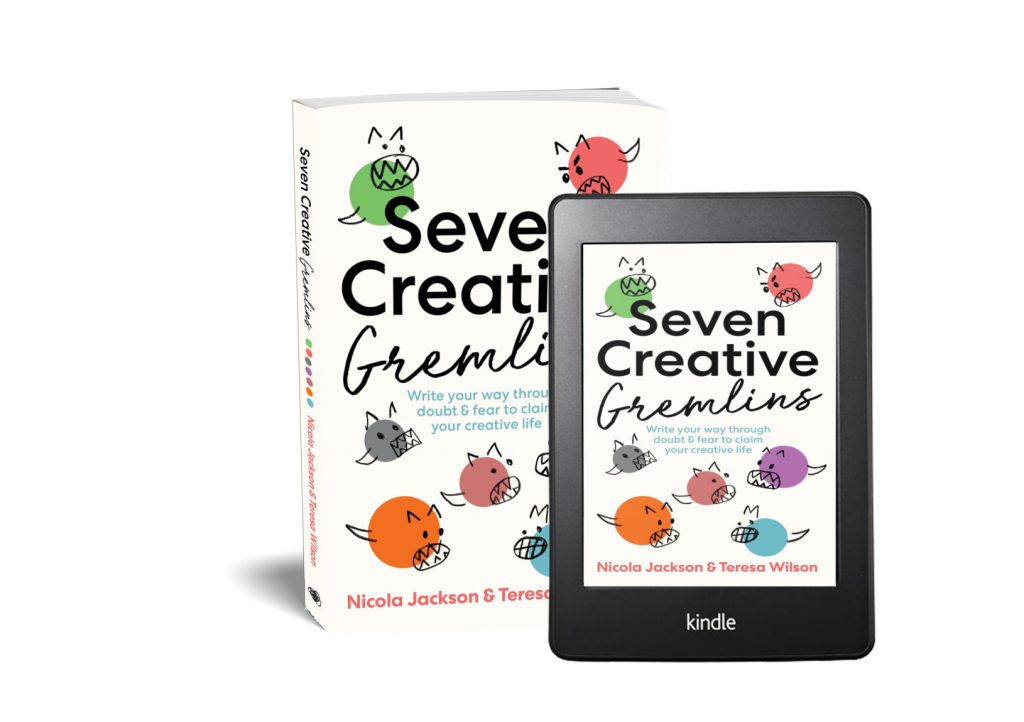So you’ve written a book! Hurrah, huzzah and congratulations.
To share that work of genius with the world, you’re probably going to need a literary agent. So how do you go about getting one?
Firstly, don’t let anyone (the internet) tell you that getting an agent is impossible. That agents just don’t want to get their hands on anything good these days. That they ignore wonderful novels unless they’re written by a celebrity chef. That, in fact, agents HATE BOOKS!
Piffle. Agents adore books even more than you do, since they have made it their actual JOB to discover and then sell wonderful works of fiction/non-fiction.
So. You can and indeed you will get an agent, but as I learned when I pitched out – you’ll get there faster if you attend to the following five points:
1 – You need to have finished your novel
It sounds obvious but…I mean, seriously, you need to have written it, start to finish, with the emphasis on finish. Sure, you’ve got a brilliant idea, you’ve written around ten chapters or so, it’s a fricking boni-fide masterpiece and you’re gagging to cut someone else in on a piece of the action. But just…NO. Unless you’re writing non-fiction (which you can pitch out via a proposal, in itself still a large document and a lot of work), you must have completed your novel before you pitch it out. Why? Many reasons, but mainly that it’s way easier to start a novel than it is to finish it (cut to every wannabe author’s bedside drawer of abandoned dreams). Agents know this. You really want to be a writer? Then prove you’ve got the chops by finishing the novel. Oh yeah, and then..
2 – You need to redraft your book
I understand that if you have finally, against all the odds, completed the Herculean task of typing THE END on the last page of your manuscript, you feel you deserve – no goddamnit – you demand things to start happening immediately if not sooner. Writing a novel is a long and lonely process, with very little (if any) validation, and with only the steady decline of your social skills, life savings and/or self esteem for company. But you DID IT! So, surely all that angst and solitary madness is over now?
Nope. There’s a reason why the incredibly wise Anne Lamott calls them Shitty First Drafts. Your first draft is where you tell yourself the story. You just blart it all out there on the page. Your second draft is where you start to tell everyone else the story. (Every draft after that is where you hone it so that your story gets the best possible reaction from its intended audience). Use a trusted critique group if it helps. Show it to a couple of beta readers. Or just trust your own instinct, leave it alone for a few weeks and then go back to it, red pen in hand. Get it to as good as you can but also, don’t obsess about absolute perfection. Done, after all, is better than good as Elizabeth Gilbert reminds us. (This is a fine line to tread and I’ll write another post about this sometime). When you’ve finally got your book as far as you can on your own, you’re ready for an agent. And to catch agent’s interest…
3a) – You need to write a shit hot synopsis and query letter….
And yes, they are difficult. Some writers complain that they cannot possibly sum up the majesty of their manuscript in a line/paragraph/two page synopsis and I would say well then, get some help. Because, yes it is hard. In some ways it’s as difficult as writing the novel, just a different kind of hard. And comparatively time consuming given how few words you are actually writing, but so, so, worth it, not least because writing about your book in this way can actually help you identify weak areas and thus improve your novel.
Think of every stage of writing like a test. You finished the novel? You redrafted the novel? You wrote and honed a query letter and synopsis? Great. Every time you answer yes to these questions, you are still in the race, and any other aspiring author who has not done those things falls out of the competition.
3b) – you must write them EXACTLY how the agent in question asks for them
Please do this. Seriously, no matter how hilarious and kooky your friends tell you that you are, your potential agent doesn’t want to see this in the form of a ‘innovative’ submission. Whatever kerazzy way you have thought of to introduce your submission and mark it out from the crowd, someone else – a hundred thousand someone elses – have thought of it first. Agents do not want to see your creativity displayed in coloured paper/crazy fonts/interpretive dance. Your letter, synopsis but mostly your chapters should tell the recipients everything they need to know about your creativity and imagination. Any thing else is distraction, and suggests you don’t have faith in your novel. And you do, of course, don’t you?
Agents want form submissions not because they want to crush your individuality, but because they get thousands of submissions every month, all piling up and waiting to be read by the reader or intern whose job it is to filter the slush pile or ‘talent pool’ as some are now more tactfully calling it.
As anyone who has ever done an office job knows, the quickest way to assess a lot of documents is if they all arrive in the same format, with all the info in the same places, so whoever is reading them doesn’t have to keep adjusting their approach to each one.
If you are the one who makes them have to stop, and squint and work out what exactly is happening here, you are annoying the very people you most want to impress.
When I first pitched out, it was half email and half paper submissions. By the second time I pitched out, five years later, all but one of the ten agents I contacted asked for online submissions and several of those required cutting and pasting first chapters into an online form with distinct sections so that authors couldn’t deviate even if they wanted to. All the formatting, hell, all the spacing was lost. GADZOOKS! These are people who really just want to read your words in the most direct and quickest way possible. Why make that hard for them?
So, take the hint. Simplicity, speed. Agents need to get through them as fast as they can so they can see which ones shine. Hopefully, one of those little stars is yours.
4 – Make sure you’ve hand picked your list of agents based on their tastes
Agents love books, yes, but they don’t all love the same books. Given that most well established agents only take on a handful of new authors a year, your manuscript needs to hit them right where they live. So do the research. It really isn’t difficult, and there are a few ways to go about it. Find authors whose novels are similar to yours and who have done well and investigate their agents. Or go through every agency online, clicking through the agent profiles to see what they like, and what they’re looking for. Read interviews by them. Follow them on twitter. Get a feel for them. Trust your instincts a little. Don’t be in too much of a hurry. Make a list of twenty agents who sounds like they’d be a good fit and pitch out to your top ten. Wait three months. Then send out to your next ten. Have another ten on stand by.
5 – WAIT
Oh, the joy, the fun, the glacial pace of publishing! You’ve written your novel. You’ve slaved over a synopsis and you’ve hand-picked the exact right agents for you. Then, with a beating heart, you have pressed send.
And then….Nothing. And nothing. And – hang on, let’s just check our emails again, are we sure this thing is actually working properly because – oh, nope, just more nothing.
Well, almost nothing. Possibly the hardest thing about pitching out is there isn’t just one kind of response to get used to. What happens after you press send varies and you need to be ready for that, because it can be quite the head-fuck. Here are just some of the possibilities you might face:
* You may get an auto-response email telling you your submission has been received, possibly containing details on how long it usually takes them to read submissions, and whether they’re experiencing a busy period. (If they exceed the time given, you can consider it a silent rejection and continue to pitch out.)
*You may get no auto-response, but worry not, they have received your MS. (Very unlikely that your email has gone to junk, since that particular email address is set up to receive emails from strangers.)
*You may wait a few weeks/months and get a friendly, encouraging rejection telling you it’s not for them but giving constructive criticism/positive feedback/telling you not to give up.
*You may get a form rejection.
* You may never heard from the agent. Ever. Tumbleweed, crickets. GHOSTED. This is extremely common. It’s nothing personal. The best way to deal with this eventuality is to always check the time-frame on the agency/agent page and mark the date in your diary/submission spread sheet for when you’ll consider that submission a rejection, so you can move on.
*You may (and, oh happy days, this is why you’re suffering through all of this) get a request for a full submission. (Hence why you need to have finished your novel.) This is an occasion for dancing around the house and screaming excitedly.
* You may (and this is my favourite) get a rejection months after you’ve landed your dream agent/or even got a book deal! This happens all the time. It happened to me. And it just goes to show, what doesn’t work for one may delight another.
Still, even if things are to go very well indeed, progress will still happen more slowly than you’d like. But – good news! – this is all very character building, excellent practice for the patience you’ll need for every stage of the writing game. Because more than anything, to progress as a writer patience, tenacity and sheer bloody-mindedness are the qualities you need to develop.
Repeat after me:
This is a marathon, not a sprint.
This is a marathon, not a sprint.
This is a marathon, not a sprint.
Having trouble starting, sticking with or finishing a writing project? You’ve got Gremlins!
From Procrastination to Control Freak, Tyrant to Completion Phobe, find out which Gremlins is derailing you so you can claim your creative life.


